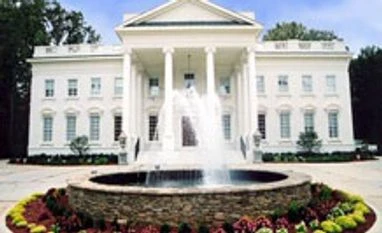The White House on Monday trimmed its outlook for US economic growth but said the deficit was shrinking faster than projected in a budget update that was virtually ignored by Republicans ahead of tough negotiations with Congress on spending cuts and raising the US debt limit.
The White House said it expected gross domestic product to rise 2.0% this year and 3.1% next year - less than the 2.3% and 3.2% forecast in President Barack Obama's budget released in April.
Growth was trimmed due to "serious headwinds" from European austerity measures and a slowdown in China, as well as across-the-board budget sequester cuts at home, the White House said.
The White House slashed its estimate of the current year's fiscal deficit to $759 billion, or 4.7% of GDP, from its April forecast of $973 billion.
The mid-session budget and economic update normally creates a stir in Washington. But Monday's report was virtually ignored by Republicans who strongly oppose Obama's spending proposals.
"It kind of struck me that it was dropped into the void here," said Robert Bixby, executive director of the Concord Coalition, a nonpartisan budget reform advocacy group.
Bixby, who has worked with the group for more than 20 years, said he could not remember any White House mid-session review that had ever caused less attention.
That's because there are no serious talks going on right now on the budget and deficit between the White House and Congress, Bixby explained, adding he thinks the report would have had more impact in August or early September.
"Normally if something like this comes out, you'd hope it would jump-start negotiations. But right now there's nothing to jump-start," he said.
Congress is not expected to pass Obama's budget this year. Republicans have been focusing on deficit reduction and spending cuts, dismissing Obama's arguments for programs to spur jobs, financed in part by higher taxes on the wealthy.
The Senate passed a budget in March, and House Republicans are currently working their way through spending bills. But the two sides are far apart. The White House has said Obama would likely veto any legislation that implements the House Republican budget framework.
A government shutdown could loom if Congress fails to agree on spending by the end of the fiscal year in September. Later in the fall, Congress will also need to agree to increase the federal borrowing limit - another pressure point.
SERIOUS HEADWINDS
Compared to recent estimates by the Congressional Budget Office, the White House is projecting larger deficits relative to economic output in the near term, at 3.5% of GDP in 2015 versus 2.1% for the CBO.
These trends reverse later in the decade, as the CBO forecasts larger deficits later in the decade due mounting costs for debt service and caring for the aging Baby Boom generation.
Meanwhile, Obama's budget proposes additional tax hikes and some spending cuts that the White House maintains will keep deficits gradually shrinking as a share of GDP.
White House Budget Director Sylvia Mathews Burwell said in a statement that the report shows that Obama's budget "achieves the core goal of fiscal sustainability by putting federal debt on a declining path as a share of the economy."
The report's forecast of a shrinking deficit could remove any sense of urgency to deal with issues important to Republicans, like reforms to government-funded health care and pensions, said Mark Kennedy, head of George Washington University's Graduate School of Political Management.
"It complicates the deficit battle that will come when we face the debt ceiling again," said Kennedy.
)